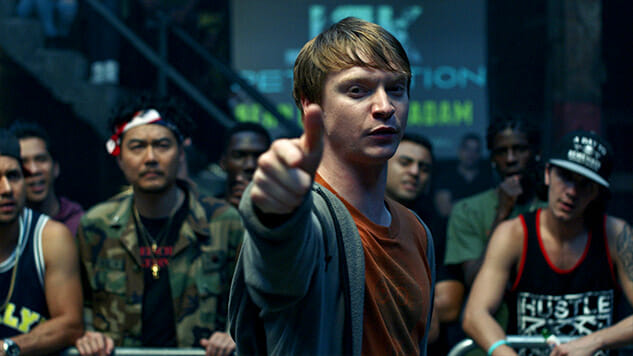Bodied

The second interaction between UC-ish Berkeley literature grad student Adam Merkin (Calum Worthy) and his battle rap mentor, Behn Grymm (Jackie Long), concerns Behn, who is African American, granting Adam—thoroughly caucasian—permission to use the “n-word.” Adam does, and immediately regrets it, even though his whole grad thesis centers around the word’s use in African-American “poetry,” academia insulating the awkward white kid against taking responsibility for his inherent, inherited racism. That “permission,” Behn implies to Adam, accompanies the kid’s need to be told by a marginalized community that all of his appropriation, all of his study and love and theorizing about art that technically isn’t his, is OK. Which in itself is racist, because, as Behn’s wife (Candice Renee) later yells at Adam, expecting the ins and outs of black culture, of black life, to be explained to ignorant white people—expecting all black people to act as personal gatekeepers for all white people—only condones that ignorance, removing accountability from the oppressor while fortifying racist inequality. No matter what Adam does, he’s being racist, and by trying not to be racist, he only digs himself in even deeper. Which is pretty much Bodied’s point: Adam is an asshole.
-

-

-

-

-

-

-

-

-

-

-

-

-

-

-

-

-

-

-

-

-

-

-

-

-

-

-

-

-

-

-

-

-

-

-

-

-

-

-

-








































